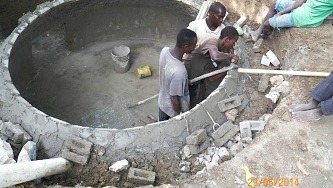

Swiss Partners
Foundation Aidha, Arconciel,
http://aidhaiti.wordpress.com,
Luckner St-Dic
Foundation Myclimate, Zürich,
www.myclimate.org
Project Type:
Technology:
Country:
Project Status:
Project Start:
End of Project:
Contract:
Swiss Contribution
The non-profit foundation myclimate – The Climate Protection Partnership, is an international initiative with Swiss origins. Founded in 2002 as an ETH Zurich spinoff, myclimate is among the world leaders when it comes to voluntary carbon offsetting measures. In the framework of this REPIC project, myclimat is working in cooperation with the Aidha Foundation, is responsible for the project’s implementation in Haiti, and in cooperation with the Indian NGO SKG Sangha (www.skgsangha.org), is responsible for the know how transfer to Haiti.
Description
Haitians in rural, as well as in urban areas, cook mostly on inefficient open fires in the front or their houses using wood or charcoal. The continuous demand for wood leads to an increasing deforestation, resulting in progressive soil erosion.
The main goal of this REPIC project is to ensure the know how transfer to Haiti. In a first phase, 10 pilot biogas dome digesters will be constructed and tested under the leadership of SKG Shanga supported by myclimate and Aidha. The digesters’ design will be adapted to the local needs based on the results of phase 1, if necessary. During the 2ndproject phase, the Aidha Foundation will realize a first series of 40 additional biogas digesters.
Results
The pilot phase was successfully completed with the commissioning of seven biogas fermenters. Due to more efficient cooperation, Uganda’s Green Heat International, the biogas expert (www.greenheatinternational.com), was newly established as a technology partner during the pilot phase. In 2015, the Aidha Foundation took over the entire project and started the second phase of the project. First, improvements for the fermenters were defined and implemented based on the first pilot phase’s experience. However, despite many years of intensive efforts, no complete and/or appropriate funding could be found for the second pilot phase. Therefore, the project was terminated at the end of 2018.